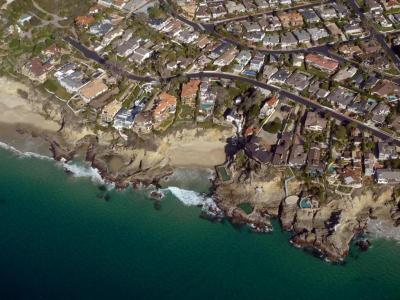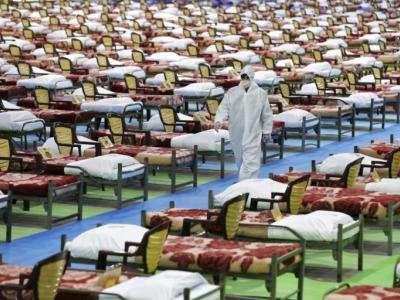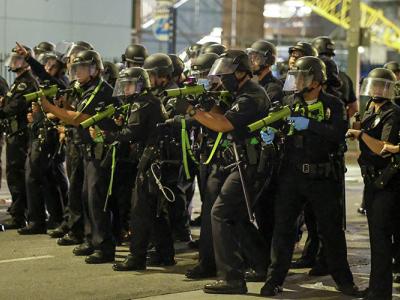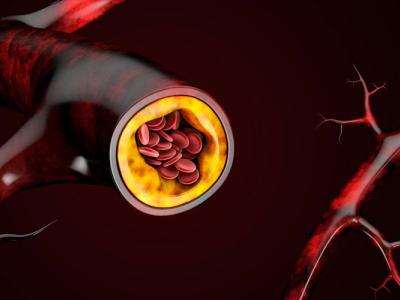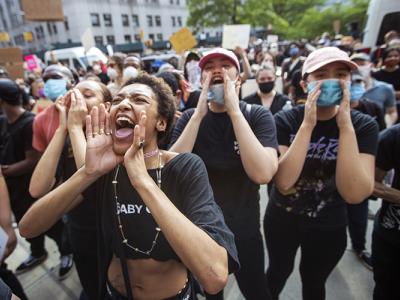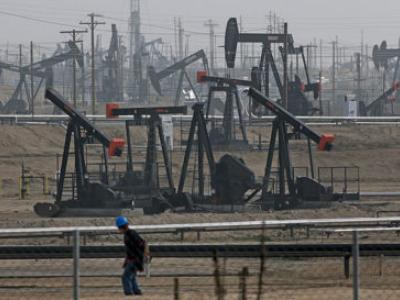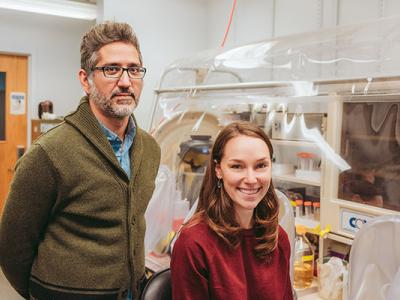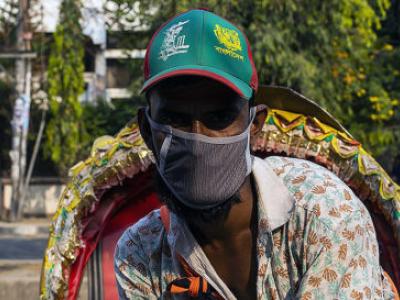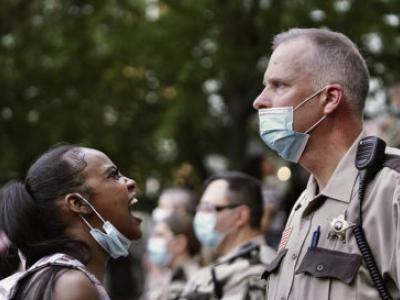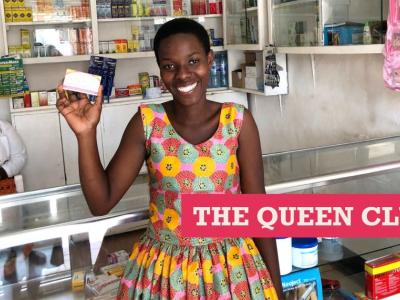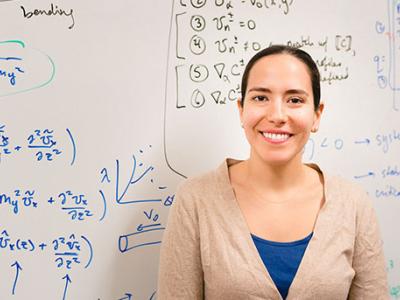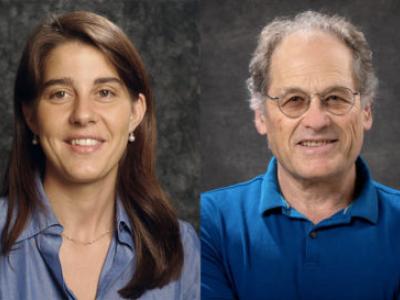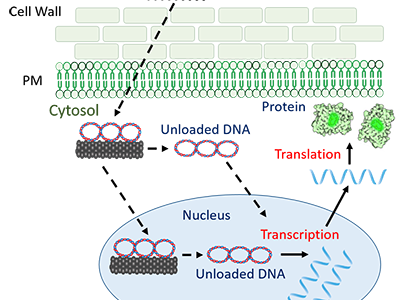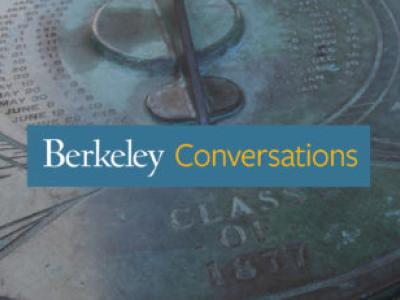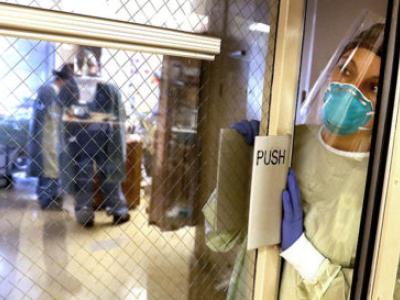Satellite imagery and geospatial data science to understand how social dynamics influence the spatial spread of SARS-CoV-2 infections.
Research News
Learn more about UC Berkeley's researchers and innovators.
Showing 1281 - 1296 of 3459 Results
Emergency health measures implemented in six major countries have “significantly and substantially slowed” the spread of the novel coronavirus, according to research from a UC Berkeley team published today in the journal "Nature". The findings come as leaders worldwide struggle to balance the enormous and highly visible economic costs of emergency health measures against their public health benefits, which are difficult to see.
Protests and demonstrations, like those erupting after the death of George Floyd, a black man who was killed when a white police officer in Minneapolis pressed his knee into Floyd’s neck for nearly nine minutes, are a daily occurrence in our world. But what happens when police use crowd-control weapons, or CCWs, against those exercising their democratic rights?
Disrupted nightly sleep and clogged arteries tend to sneak up on us as we age. And while both disorders may seem unrelated, a new UC Berkeley study helps explain why they are, in fact, pathologically intertwined. UC Berkeley sleep scientists have begun to reveal what it is about fragmented nightly sleep that leads to the fatty arterial plaque buildup known as atherosclerosis that can result in fatal heart disease.
The excruciating stretch of eight minutes when four Minneapolis police officers ignored George Floyd’s pleas for one of the officers to take his knee off Floyd’s neck is the most recent occurrence in a long history of black people’s urgent cries for help being ignored by America’s white power structure. A Q&A with Nikki Jones, UC Berkeley professor of African American studies who, for 10 years, has worked with research partners to collect and analyze hundreds of video recordings of police encounters with the public.
Living near active oil and gas wells may put pregnant people at higher risk of having low birth weight babies, especially in rural areas, finds a new study of birth outcomes in California.
They’re microscopic miners. Some species of aquatic bacteria draw in dissolved iron from their watery environment and store it in specialized compartments called magnetosomes. They use its magnetic properties to navigate, sort of like ancient mariners using a lodestone to keep their bearings. Arash Komeili, Professor of Plant and Microbial Biology and one of this year’s Bakar Fellows, aims to understand what controls and maintains the microbes’ novel traits.
For some of the poorest countries on Earth, the COVID-19 pandemic has posed a life-or-death quandary: If people continue to work, the virus might spread unchecked. But if they have to stay at home to limit the contagion, hunger and malnutrition could soar.
The upheaval in response to the killing of George Floyd comes as no surprise to Stephen Menendian, director of research at UC Berkeley’s Othering & Belonging Institute, who last year released a report examining how, 50 years after the 1967 Kerner Commission first examined the causes of black unrest, little had changed in policing.
For young women in Tanzania, one of the biggest obstacles to accessing sexual and reproductive healthcare products are watchful eyes. Despite high rates of HIV and unintended pregnancy in young women, families and communities carefully monitor the actions of young girls with the intention to uphold social norms, some of which can be harmful.
It’s like a Trojan horse on an incredibly small scale, a vehicle designed to slip through the tough defensive wall of plant cells and deliver the potent gene editing system, CRISPR-Cas9. Once inside, CRISPR- Cas9 can snip out a targeted gene to boost crop yields. The delivery vehicles are nanotubes, developed by Markita Landry. With support as a Bakar Fellow, Landry is now refining the technique and working with experts in agricultural science, business and other fields needed to reach the marketplace.
Quantum physicists Alessandra Lanzara and Joseph Orenstein have been awarded $1.6 million each over the next five years to poke and probe new types of materials to see what unusual phenomena pop out.
It’s like a Trojan horse on an incredibly small scale, a vehicle designed to slip through the tough defensive wall of plant cells and deliver the potent gene editing system, CRISPR-Cas9.
UC Berkeley’s Institute of Governmental Studies and the California Initiative for Health Equity & Action (Cal-IHEA) recently completed the largest survey of Californians to date regarding opinions and attitudes related to COVID-19.
Disaster is a laboratory for innovation. During a war, or in the aftermath of an earthquake, whole societies mobilize to answer the immediate challenge, while a cadre of researchers looks for a way to transform the crisis into advances that will improve lives, or save lives, in the future.
Hospitalized COVID-19 patients in the U.S. are enduring longer hospital stays and facing higher rates of intensive care unit (ICU) admission than patients in China, finds a new study led by researchers at the University of California, Berkeley, and Kaiser Permanente.

